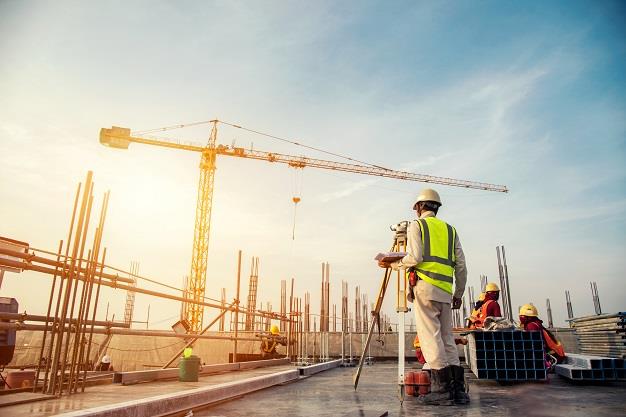President Cyril Ramaphosa confirmed a massive rollout of infrastructure and development throughout the country as part of his much-anticipated economic recovery plan.

This as the South African economy contracted by a staggering 51% in Quarter 2 of 2020. The period coincided with the hardest levels of the country’s lockdown, as government limited movement and economic activity in an attempt to curb the spread of Coronavirus.
Ramaphosa's plan, presented to Parliament on Thursday 15 October, detailed key aspects of re-industrialising South Africa's economy, job creation after more than 2-million individuals lost their jobs due to the pandemic, and ensuring that all citizens understood the buying power of locally produced goods and services.
"This plan directly responds to the immediate economic impact of COVID-19 by driving job creation and expanding support for vulnerable households. We aim to do this primarily through a major infrastructure programme and a large-scale employment stimulus, coupled with an intensive localisation drive and industrial expansion.
The interventions outlined in the plan will:
- achieve sufficient, secure and reliable energy supply within two years;
- create and support over 800,000 work opportunities in the immediate term to respond to job losses;
- unlock more than R1 trillion in infrastructure investment over the next 4 years;
- reduce data costs for every South African and expand broadband access to low-income households;
- reverse the decline of the local manufacturing sector and promote reindustrialisation through deeper levels of localisation and exports;
- resuscitate vulnerable sectors such as tourism, which have been hard hit by the pandemic.
"According to the modelling done by National Treasury, the implementation of this plan will raise growth to around 3% on average over the next 10 years."
PODCAST | 'Inconsistent administration of housing subsidy for first-time buyers unsettling'
The president also affirmed that “infrastructure has immense potential to stimulate growth and to create sustained employment both directly and indirectly”, with the plan’s focus on “robust projects to transform South Africa's cities, towns and rural areas.”
"By the end of June 2020, we had 276 catalytic projects with an investment value of R2.3 trillion. Moreover, a list of 50 strategic integrated projects and 12 special projects was gazetted in July 2020.
"These catalytic projects have been prioritised for immediate implementation with all regulatory processes fast-tracked – enabling over R340 billion in new investment. These projects are at various stages of the project life cycle.
"Those that are already in construction will see the future phases brought earlier for implementation, including some human settlements projects, which have already received bulk financing to unlock them.
"We are exploring the use of credit enhancing instruments to unlock bulk water infrastructure and national roads improvement projects.
'Fast tracking regulatory processes'
"Our infrastructure build programme will focus on social infrastructure such as schools, water, sanitation and housing for the benefit of our people. We will focus on critical network infrastructure such as ports, roads and rail that are key to our economy’s competitiveness.
Ramaphosa stressed the need to "remove the constraints that have hampered infrastructure delivery in the past".
"To ensure that there is active implementation of our infrastructure built programme, we have established Infrastructure SA and the Infrastructure Fund with the capacity to prepare and package projects. This approach is already encouraging private investors to help us build capability for infrastructure delivery within the state and to develop blended financing models.
In addition to this, the president confirmed a total of 18 housing projects have been gazetted, with an estimate value of R130bn – these are expected to “produce more than 190 000 housing units”.
READ | 'Self certification vital' to unclog bottlenecks throttling SA's construction industry
Infrastructure South Africa, an infrastructure fund announced previously by the president, will also provide R100-billion in catalytic finance over the next decade in support of these catalytic projects, which Ramaphosa noted was "already encouraging private sector investment".
The fund is expected to leverage R1-trillion in investment.
Several projects are already in construction. These include human settlements projects such as Matlosana N2 in North West, Lufhereng in Gauteng, Greater Cornubia in KwaZulu-Natal and Vista Park in Free State.
Together these represent an investment value of R44.5 billion.







